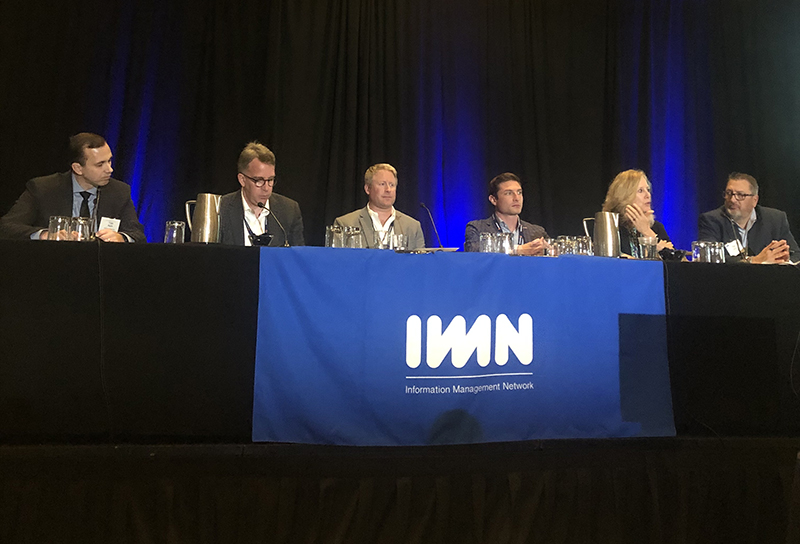Keys to Effective SFR Vendor Management

- Making sure to set expectations upfront for what constitutes a completed job is critical to successful vendor management.
- Panelists at the IMN SFR Forum (West) have found it effective to offer performance feedback to incentivize vendors to improve.
- Vendors today are motivated to work with firms that offer consistent, reliable work and allocate pay in a timely manner.
Setting clear expectations, offering incentives and giving performance feedback were among the key ways panelists at the recent IMN SFR Forum (West) in Scottsdale, AZ, mentioned that they effectively manage their vendor networks and maintain good relationships with them.
They discussed the process of hiring, training and working with vendors and what strategies they’ve found to be successful.
Proper On-boarding and Setting Expectations
When you’re looking to hire a new vendor, it’s critical that they have the proper insurance and credentials to complete the work. This helps to ensure your firm is protected in case any incidents occur, noted panelist Jason Lindwall of RealPage, a real estate software and services firm.
It’s also imperative to review the work orders with the vendor and make sure your expectations are clear for what constitutes a completed job, added panelist Tim Rath of Safeguard Properties, a firm that works with vendors on property inspections, maintenance work and other tasks.
“Did they complete all of the objectives that the work order was asking for? We measure that to see if they’ll continue to receive work from us,” Rath said.
If a vendor does successfully complete a job, it’s also important to pay them on time. Using automated payments can be helpful to make the payment process smoother, panelists said. This is especially important for smaller vendors who may rely more heavily on quick payment.
“We’re getting close to a point where twice a month isn’t getting paid fast enough,” noted panelist Kori Covrigaru of PlanOmatic, a photography and floor plan servicer for property owners. “Today, people are transferring money instantly…so we’re looking at platforms that allow us to pay our vendors as soon as they complete a project. We think that’ll create better retention.”
Offering Performance Feedback and Incentives to Improve
Several panelists noted that they have found it effective to offer feedback. One way is to give “scores” to vendors based on their work performance. They also rank vendors against others in their network to see how they stack up.
Rath noted that his firm gives vendors a weekly scorecard based on their timeliness and the quality of their work. He added that a ranking model works well to incentivize vendors. Vendors higher up on the list receive work first and therefore lower-ranked vendors will want to improve in order to secure more jobs.
“It also creates less confusion and less communication because they know where they stand and what they need to do to improve,” Covrigaru added.
Covrigaru also pointed out that another way to motivate vendors is to offer consistent work. Vendors tend to value the volume of jobs more than the amount paid per job.
Build a Trusting Relationship
Panelists also discussed the importance of maintaining a good relationship with your vendors and ways to build trust. One strategy they touched on was how they respond when mistakes are made. If you’ve established a good relationship with a vendor, a good practice is to evaluate how much you value the vendor. Ask yourself if it’s worth giving them a chance to fix the problem, observed Zach Bassett of Property Masters, a general contracting firm.
“Your whole goal is to try to build loyalty and by immediately pulling someone else in to fix the mistake, it definitely affects that loyalty,” he said.
However, if the mistake has too much of an impact on the business or the vendor doesn’t resolve the issue within a certain timeframe, it may be time to let the vendor go, he added.
Rath suggested that another way to avoid issues is to treat vendors like employees. Explain your company culture to them and get them on board with your company’s goals.
“There’s an important part of communicating to them all of the time on what your organization truly believes in and what it’s all about. This way they ‘catch the spirit,’ so to speak, of what you stand for,” he said.
Lindwall added that this is especially important in the single-family rental industry. Vendors need to understand the properties are being rented by tenants with certain expectations for how things are done to justify their rent.
“Educating your vendors is important as well as having a depth of vendors to work with,” he said.
For more coverage of the single-family rental market from the IMN SFR Forum (West), see our additional coverage on the Chatter blog. Need SFR financing? Contact Arbor today and learn more about our SFR portfolio loan program.

